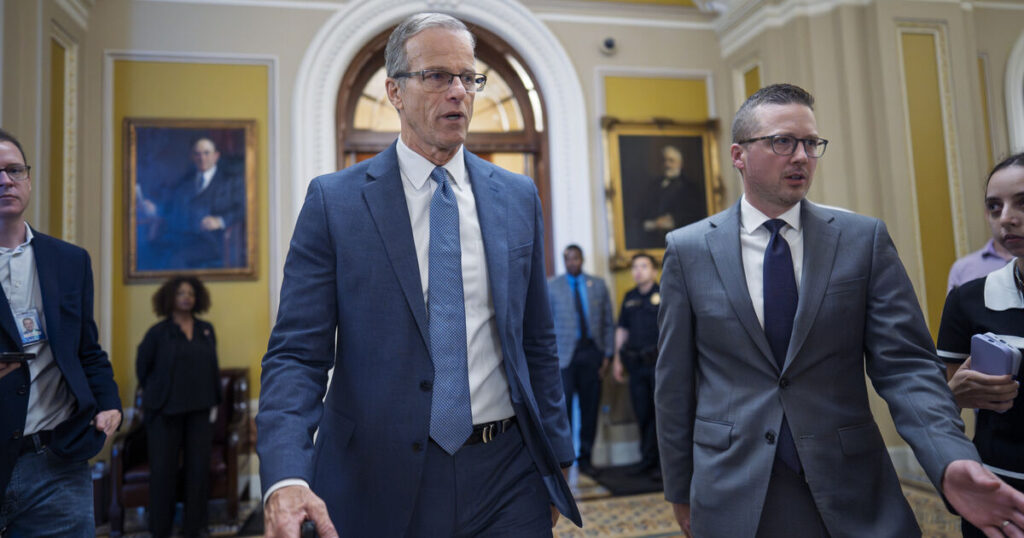Senate Republicans have narrowly passed Donald Trump’s major tax breaks and spending cuts bill, overcoming opposition from Democrats and internal dissent after a strenuous overnight session.
Vice President JD Vance cast the tie-breaking vote (50-50) to secure the bill’s passage. Republicans Thom Tillis, Susan Collins, and Rand Paul opposed the legislation.
The vote concluded an unusually tense weekend at the Capitol, where the President’s key legislative priority hung in the balance.
Senate Majority Leader John Thune spent the night seeking compromises between party members concerned that the bill’s Medicaid reductions would leave millions without healthcare, and conservatives seeking deeper cuts to address deficits inflated by the tax cuts.
The passage represents a crucial moment for Republicans, as the 940-page “One Big Beautiful Bill Act,” its formal title, dominated Congress as a shared priority with the President.
House Speaker Mike Johnson has indicated potential challenges ahead, suggesting the Senate bill may face difficulties in the House, where skeptical legislators are being summoned back to Washington before Trump’s July 4 deadline.
Acknowledging the complexity, President Trump stated as he left the White House on Tuesday, it is “very complicated stuff.”
“We’re going to have to see the final version,” he said. “I don’t want to go too crazy with cuts. I don’t like cuts.” What began as a routine amendment voting day transformed into an almost continuous session as Republican leaders sought time to rally support. It ranks among the longest sessions, processing the most amendments in recent history.
The monotonous roll calls in the chamber masked the frantic efforts behind the scenes to stabilize the bill. Tense situations unfolded both on and off the Senate floor, and tempers flared.
The bill includes $4.5 trillion in tax cuts, according to the latest analysis, permanently extending Trump’s 2017 rates (set to expire at year’s end) and adding new ones he campaigned on, including tax-free tips.
The legislation would repeal billions in green energy tax credits, which Democrats warn will cripple wind and solar investment nationwide.
It imposes $1.2 trillion in cuts, largely to Medicaid and food stamps, through work requirements for able-bodied individuals (including parents and older Americans), stricter eligibility criteria, and changes to federal reimbursements to states.
Additionally, the bill allocates $350 billion for border and national security, including deportations, funded partly by new fees levied on immigrants.


